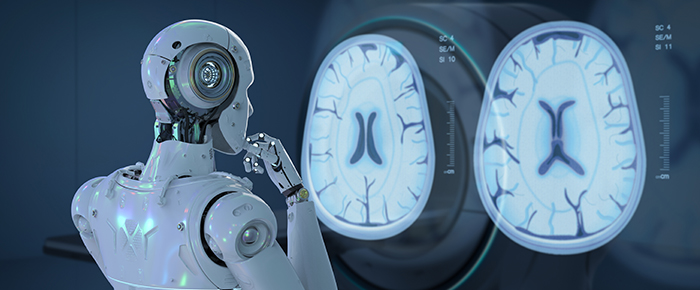
AI Powers New Frontiers in Medical DiagnosticsAI Powers New Frontiers in Medical Diagnostics The advent of artificial intelligence (AI) has revolutionized various industries, including healthcare. AI is transforming medical diagnostics, enabling groundbreaking advancements that enhance the accuracy, efficiency, and accessibility of healthcare services. Precision Medicine: AI algorithms can analyze vast amounts of patient data, including genetic information, medical history, and lifestyle factors. This enables personalized treatment plans tailored to individual patients’ profiles. Precision medicine powered by AI improves treatment outcomes and reduces unnecessary side effects. Automated Image Interpretation: AI algorithms can interpret medical images such as X-rays, MRI scans, and pathology slides with remarkable accuracy. This automation empowers clinicians to make faster and more informed diagnoses, reducing the time required for diagnosis and improving patient outcomes. Disease Detection and Prediction: AI systems can identify early signs of diseases that are often missed by traditional methods. By analyzing large datasets of patient data, AI algorithms can predict future disease risk, enabling preventive measures and early interventions. Drug Discovery and Development: AI is accelerating the drug discovery process by identifying potential therapeutic targets and optimizing drug development. AI algorithms can screen millions of compounds, identify drug interactions, and predict clinical trial outcomes. Patient Monitoring and Telehealth: AI algorithms can monitor patient health remotely, enabling continuous care and early detection of deteriorating conditions. AI-driven chatbots provide personalized health advice, support, and triage, improving access to healthcare services for patients in remote areas. Challenges and Opportunities: While AI has immense potential in medical diagnostics, there are challenges to address, such as: * Data privacy and security: Ensuring patient data confidentiality is crucial. * Algorithm interpretability: Clinicians need to understand how AI algorithms make decisions to ensure trust and accountability. * Regulatory frameworks: Establishing clear guidelines for AI-powered diagnostics is essential to ensure patient safety and ethical use. Despite these challenges, the benefits of AI in medical diagnostics far outweigh them. As AI continues to advance, it will further empower healthcare professionals, improve patient care, and lead to groundbreaking discoveries in the field of medicine.
Posted inNews